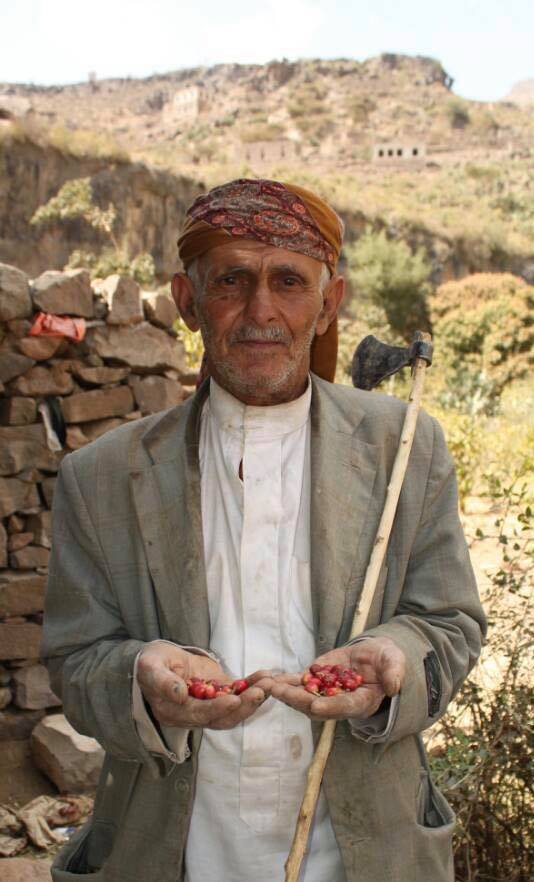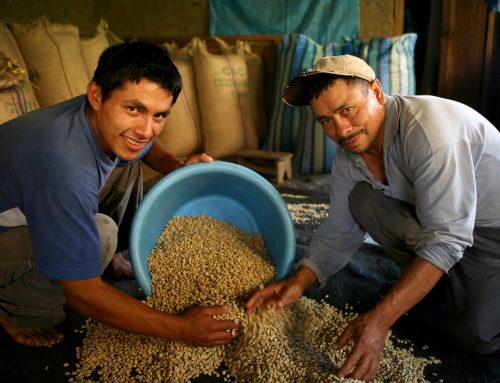The Specialty Coffee Association’s World of Coffee Expo is always a diverse event. Producers, roasters, equipment manufacturers and baristas from around the world all gather to socialize and network over great coffee. However this year’s edition, hosted in Amsterdam, was missing some a key contingent from one of coffee’s most important origins. Coffee farmers from Yemen who had worked months and braved war to secure visas to visit the expo were denied by the Dutch government at the last moment.
Steeped in History
The farmers’ absence was an incredibly disappointing result for Qima Coffee, their cooperative, and a real loss for event attendees who look forward to meeting the farmers themselves. Only the Qima Coffee employees that hold Western passports were able to attend. Yemen’s important place in coffee history and it’s struggles makes the farmer’s absence all the more sad.
Yemen is generally credited with being one of the first areas to grow coffee commercially. Originally brought from its native home in Ethiopia, coffee gained popularity in Yemen. From the port of Mokha, it spread to Arabian peninsula, Egypt, Turkey and Europe. Despite its rich heritage, Yemen’s coffee industry has long been in decline. More recently due to the ongoing civil war, it has declined even further.
Resurrecting Yemen Coffee
However, in some areas, mostly in the Western part of the country farmers are able to continue production despite risks to their lives and enormous logistical challenges. One of those that is able to manage production is Qima Coffee. Other active Yemeni coffee companies include Port of Mokha. The founder, Mokhtar Alkhanshali, is even been the subject of a recent Dave Eggers book. He is also now subject to a lawsuit claiming fraud and racketeering among other allegations. Another Yemeni coffee success story are the women farmer’s of Talok Coffee Association that produces impressive coffees for Dubai-based Mokha 1450.
Qima was founded in 2016 by Faris Sheibani, the son of Yemeni immigrants to the UK. Sheibani left a career in oil and gas finance in London to search for a way to help the people of Yemen. He eventually settled on coffee as the best way of doing so. Supported by French NGO, ACTED, Qima works with “nano” and “pico” lots – meaning small farmers. In some cases Qima will buy as little as two kilograms and attach each farmer’s story and image to their package. And the company has already has already had a direct impact on livelihoods. Some farmers have already seen their income jump a whopping twentyfold. The income from coffee also helps provide locals with an alternative to taking up arms. Often the only way to make a living is to enlist as a combatant in the conflict. Qima also remains focused on long-term potential as well as immediate impact. The company provides farmer training and invests in local infrastructure. Through their Qima Foundation, ten percent of all profits are reinvested in education and agriculture in Yemen.
Impact
As disappointing as the Qima farmer’s absence was at the World of Coffee, their story and rare coffees were one of the main attractions. As the world waits for the conflict to end, the people of Yemen have no choice but to continue living their lives. Although it seems a small effort, buying Yemeni coffee is one real way individuals can help. It provides a vital income at a crucial moment.






